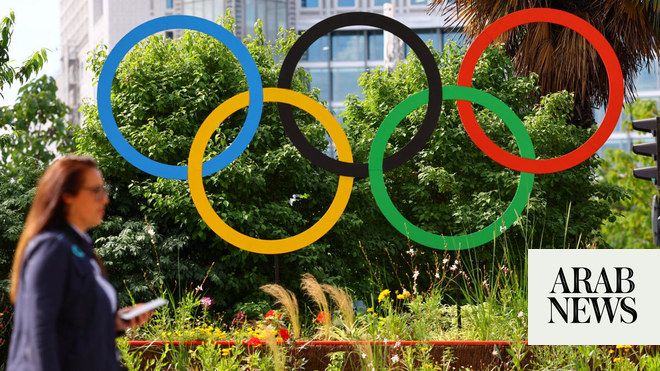LONDON: For a decade, leaving the European Union has been the dominant issue in British politics. Nowadays it is almost not talked about. And this is clearly the way Labor leader Keir Starmer likes it.
He has worked hard to regain the support of working-class voters, millions of whom were lured five years ago by Conservative Boris Johnson’s promise to “get Brexit done” as Labor campaigned to keep the path open to remaining in the EU.
Starmer’s reward is polls which now predict he will become Downing Street Prime Minister by the end of this week, perhaps with a historic majority. But if he gets there, he won’t be able to keep Brexit out of the news for long.
His job will be to boost economic growth. Businesses say that would require breaking down some of the barriers Britain’s departure from the EU has left in their trade. That, in turn, is likely to mean reopening contentious negotiations with Brussels.
Britain finally left the EU in January 2020 under Johnson. In its determination to close the chapter on Brexit, Labor has ruled out a return to the EU single market or customs union. But he argues it is still possible to remove trade barriers with the 27-nation bloc to help companies, especially smaller ones, that have struggled with higher costs and paperwork.
Labour does not want to “open up the wounds of the past”, said Jonathan Reynolds, the Labour MP who is set to become Starmer’s business secretary.
“It’s clear we need a better deal and we can achieve real improvements,” he said on Thursday at an event organized by the British Chambers of Commerce (BCC), a business lobbying group, which said the parties should stop “walking on thin ice” on the issue connections with the EU.
The survey by accountancy firm Menzies found that 1 in 3 British businesses want to reopen the Brexit deal reached under Johnson and 1 in 5 want the new government to rejoin the single market, with 20 per cent citing Brexit barriers limiting international expansion as a factor.
‘Like-minded PARTNER’
One of Labour’s early promises is to push for a veterinary deal with the EU that would reduce border checks on animal products, which would be a hurdle for British farmers and importers. It also wants mutual recognition of some professional qualifications and easier access for touring artists.
Labor presented these as relatively simple gains that could be achieved without having to reopen the Brexit deal reached under Johnson.
But even such small steps would require difficult choices, said an EU source, who asked not to be named to discuss hypothetical future negotiations.
The veterinary deal would require the UK to submit to dispute settlement at the European Court of Justice (ECJ), an EU source said, anathema to Brexit campaigners who see it as a breach of British sovereignty.
“Everyone wants to work with a like-minded partner, friend and ally,” the EU source said. “But the idea of having the same benefits you get as a member of the club becomes a bit more difficult.”
Anand Menon, professor of political science and director of the British think tank Changing Europe, said Labor may be wrong in its assessment of how enthusiastic the EU will be about renegotiations after years of conflict with British governments.
The bloc already has a lot on its plate, he said. And while Britain may want to improve technical issues in areas such as food, Brussels would like to talk about mobility – making it easier for people to live and work in the UK, especially young people.
“I think we’re going to see a huge change in style and some tinkering with the content,” Menon said.
The Conservatives say Labour’s policies will “solve Brexit”, including by subjecting the UK to ECJ rulings again.
Prime Minister Rishi Sunak, in a debate this week, accused Labor of planning to embrace a return to free movement of people as part of its plans to strike a better Brexit deal with the EU. Starmer has said he will reject any deal with the EU that increases immigration.
Labor’s Reynolds said he wanted to improve the trade situation while also offering benefits to the bloc: “It’s not necessarily easy, but there are negotiations and I can see the process of delivering these things.”

